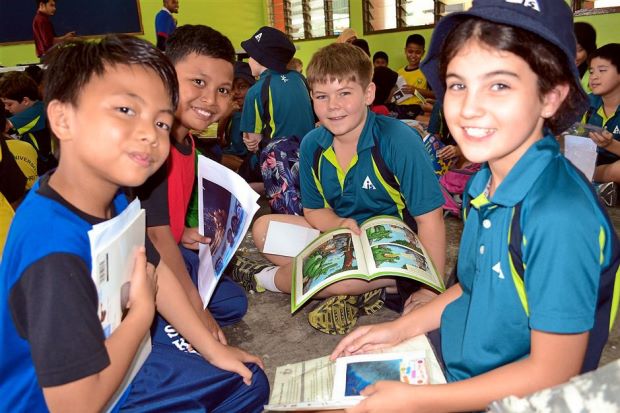If even the venerable Ministry Of Education needs unfair competition against the private sector – what kind of message are we sending to the private sector and entrepreneurs in Singapore?
I refer to the article “Private pre-schools worry about new P1 admission policy” (Straits Times, Nov 29).
It states that “Some private pre-school operators are watching the changes in the sector with concern, after the Ministry of Education (MOE) announced on Monday that children in its kindergartens would get priority admission in the Primary 1 registration exercise.
Smaller players are worried about being squeezed out as MOE expands its reach and adds an advantage to attending its kindergartens, though MOE said the move is to better ease children into Primary 1 education.
Under the new rules, children in its 12 kindergartens will be allowed to apply for places in the primary schools whose premises the kindergartens share, under Phase 2A2 of the registration scheme, which now applies to children whose parents or siblings were former pupils but are not in the alumni association.
“This will put private schools which are not affiliated with any primary school at a disadvantage,” said Ms Kelly Chua, principal of Appleland Playhouse, a childcare centre with 170 children.”
This is obvious and blatantly unfair competition, and discrimination against the private sector.
As to “Appleland in Telok Blangah might feel the heat from the MOE kindergarten in Blangah Rise, whose children will get priority admission to Blangah Rise Primary. Parents of children who are eligible for admission in later phases than 2A2 might feel pressured to move them to MOE kindergartens, said Ms Chua” – some children may suffer the trauma of moving to a new school and parting with their schoolmates.
With regard to “MOE entered the pre-school sector in 2014, with the goal of raising the quality of early childhood education here. The kindergartens will charge $160 a month from next year, up from $150 now, and take in 60 to 120 children each. This can go up to 160 if there is demand.
By 2023, MOE hopes to have 50 kindergartens located in primary schools and offering 14,000 places – enough to cater to a fifth of all Singaporeans and permanent residents aged five and six. There are about 450 kindergartens here now, with a median monthly fee of about $170” – by this action of unfairly giving a competitive advantage to itself – the end result may be complacency, and a stifling effect on the growth and quality of the private sector.
Unfair competition is not new, as it used to be that the subsidies could only be used in two public sector-linked childcare groups.
In respect of “Dr T. Chandroo, chief executive of pre-school chain Modern Montessori International, which has two centres in Sengkang, said the new policy would affect all private operators in the long run as more MOE kindergartens come up.
“Instead of being able to play a pivotal role in the child’s life in his formative years from birth till six years of age, there is a likelihood that parents may leave our centre after the nursery programme for the MOE kindergarten,” he said, adding that private operators may become centres for just children aged up to four.
Dr Timothy Chan, director of SIM Global Education’s academic division, noted that early childhood education was a key part of the National Day Rally speech given by Prime Minister Lee Hsien Loong, who announced plans to invest in pre-schools and ramp up places for young children.
“The role of the state stepping in is to level the playing field from the beginning and provide an education experience that can be enjoyed by many people without them having to pay hefty fees that some private pre-schools charge,” he said, adding that private pre-schools must find “new value propositions” to keep parents going to them” – what this issue may highlight is the current and historical presence of unfair policies and practices in so many areas in Singapore.
For example, the parachuting of high-ranking military men to the private sector with argubly so many examples of disastrous outcomes.
The protection of our politicians from “real” criticism by a 151st Press Freedom Ranking media.
Well, the joke may be on MOE, because despite all its resources – why does it need to compete unfairly?
In the final analysis – this may be yet another message that we seem to keep sending to the private sector that it may be harder to succeed in Singapore. The general feeling may be that Singaporeans are generally lacking in creativity and entrepreneurship – thanks to unfair competition from the public or quasi-public sector.
Uniquely Singapore!
Leong Sze Hian
